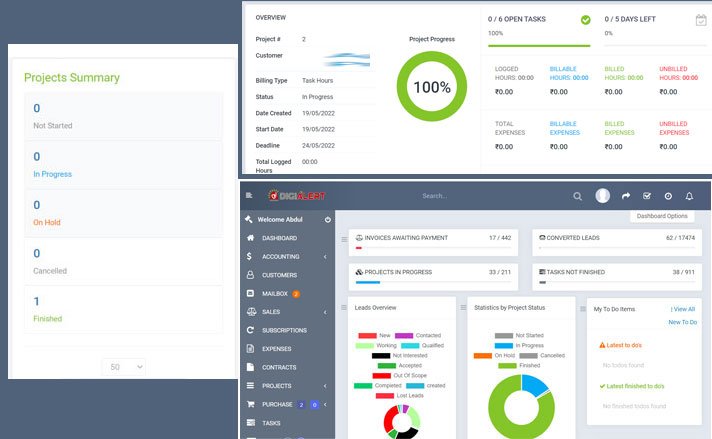Drone Security Testing
Drone Security Testing
Drone security testing is a vital service that assesses the security of unmanned aerial vehicles (UAVs) and their systems. This testing identifies vulnerabilities in hardware, software, and communication protocols, ensuring the protection of sensitive data and preventing unauthorized access. As the use of drones increases across various sectors, including delivery, agriculture, and surveillance, ensuring their security is paramount. Our comprehensive drone security testing services help organizations mitigate risks, comply with regulatory standards, and enhance the overall safety of drone operations.
WHAT IS
Drone Security Testing
Drone security testing involves a thorough evaluation of unmanned aerial vehicles (UAVs) and their operational systems to identify potential security vulnerabilities and threats. As drones become increasingly integrated into various industries, including logistics, agriculture, and surveillance, the need for robust security measures has grown significantly. This testing encompasses various aspects, including hardware assessments, software vulnerability scanning, and communication protocol analysis. By simulating potential attacks, security professionals can uncover weaknesses that could be exploited by malicious actors. The goal is to ensure that drones operate securely and reliably while safeguarding sensitive data transmitted during their operations. Furthermore, drone security testing helps organizations comply with regulatory requirements and industry standards, ultimately enhancing the overall safety and security of drone operations. As the use of drones continues to expand, proactive security measures through comprehensive testing are essential to mitigate risks and protect against potential cyber threats.
Speak to an expert
key features
Drone security testing
Types of
Drone Security Testing
There are several types of drone security testing designed to address various aspects of UAV security:
1. Hardware Security Testing: Evaluates the physical components of drones for vulnerabilities, including tampering and unauthorized access.
2. Software Vulnerability Assessment: Analyzes the drone's software for known vulnerabilities and weaknesses that could be exploited.
3. Communication Protocol Testing: Assesses the security of communication channels between the drone and its control systems to prevent interception.
4. Penetration Testing: Simulates real-world attacks on drone systems to identify potential security gaps and weaknesses.
5. Firmware Analysis: Examines the drone's firmware for vulnerabilities that could compromise its functionality or security.
6. Network Security Testing: Evaluates the security of the networks used by drones, ensuring robust defenses against cyber threats.
7. Regulatory Compliance Testing: Ensures that drone operations meet industry standards and regulatory requirements for safety and security.
8. Incident Response Testing: Tests the effectiveness of incident response plans in the event of a security breach.
9. Risk Assessment and Management: Identifies potential risks associated with drone operations and provides strategies for mitigation.
10. User Training and Awareness: Educates operators and stakeholders on best practices for drone security and risk management.
Statistics on
Drone Security Testing
Speak to an expert
How do we do
Drone Security Testing
At digiALERT, our expert team leverages a structured approach to deliver comprehensive Drone Security Testing services:
- Initial Assessment: We conduct a comprehensive evaluation of the drone's hardware and software.
- Vulnerability Scanning: Automated tools are used to identify known vulnerabilities in the system.
- Penetration Testing: Simulated attacks are performed to assess the resilience of drone systems.
- Communication Protocol Analysis: We examine communication channels for security weaknesses.
- Regulatory Compliance Checks: Ensuring adherence to industry regulations and standards.
- Risk Assessment: Identifying potential risks associated with drone operations.
- Remediation Recommendations: Providing actionable steps to address identified vulnerabilities.
- Real-time Monitoring: Implementing continuous monitoring solutions for ongoing security assessment.
- Incident Response Planning: Developing tailored plans for responding to potential security breaches.
- Reporting and Feedback: Delivering detailed reports on findings and collaborating with clients for improvements.
WHY Drone Security Testing
WHO NEEDS Drone Security Testing
- Identify Vulnerabilities: Drone security testing uncovers weaknesses in hardware and software systems.
- Protect Sensitive Data: Ensures the confidentiality and integrity of data collected by drones.
- Enhance Operational Safety: Mitigates risks associated with unauthorized access and operational disruptions.
- Ensure Regulatory Compliance: Helps organizations meet industry standards and legal requirements.
- Safeguard Reputation: Prevents security breaches that could damage an organization’s credibility and trust.
Who Needs Drone Security Testing
- Logistics Companies: Utilizing drones for delivery and inventory management.
- Agriculture Firms: Deploying drones for crop monitoring and management.
- Government Agencies: Using drones for surveillance and public safety.
- Construction Companies: Employing drones for site inspections and mapping.
- Energy Sector: Monitoring infrastructure through drone technology.
- Healthcare Providers: Transporting medical supplies and equipment via drones.
- Security Firms: Implementing drones for perimeter security and monitoring.
- Telecommunications: Using drones for network inspections and maintenance.
- Research Institutions: Conducting studies that involve drone technology.
- Event Organizers: Utilizing drones for aerial photography and crowd monitoring.
How often is Drone Security Testing recommended
When it would be performed
Drone security testing should be conducted regularly to ensure the ongoing security and compliance of UAV operations. At digiALERT, we recommend a multi-tiered approach to testing frequency. Initial comprehensive testing should be performed before deploying drones to identify and remediate any vulnerabilities. Following deployment, we suggest conducting security assessments quarterly to address any new risks or changes in operational environments. Additionally, after any software updates or changes to drone configurations, immediate testing should be performed to ensure that no new vulnerabilities have been introduced. Regular incident response drills should also be conducted to prepare for potential security breaches. By leveraging our managed services, organizations can ensure that their drone operations are continuously monitored and tested, allowing them to focus on their core business activities while we handle their drone security posture.
Speak to an expert
How are we
unique
- Expert Team: Our team consists of seasoned professionals with extensive experience in drone security.
- Tailored Solutions: We customize our testing services to meet the specific needs of each client.
- Comprehensive Assessments: We conduct thorough evaluations of both hardware and software components.
- Advanced Tools: We utilize cutting-edge tools and techniques for effective vulnerability assessments.
- Regulatory Compliance Focus: Our services ensure adherence to industry standards and regulations.
- Real-time Monitoring: We offer continuous monitoring solutions for ongoing security assessment.
- Incident Response Preparedness: We develop tailored incident response plans for drone operations.
- Training and Awareness: We provide training programs to educate clients on drone security best practices.
- Client-Centric Approach: Our commitment to client satisfaction ensures we prioritize their unique requirements.












